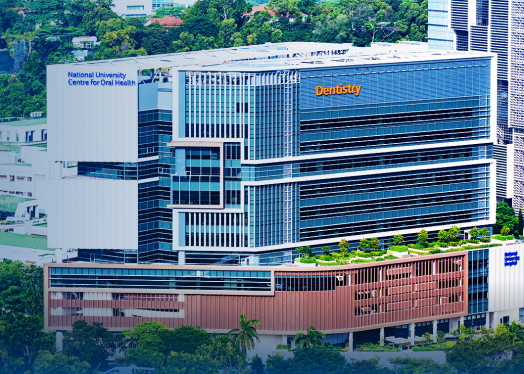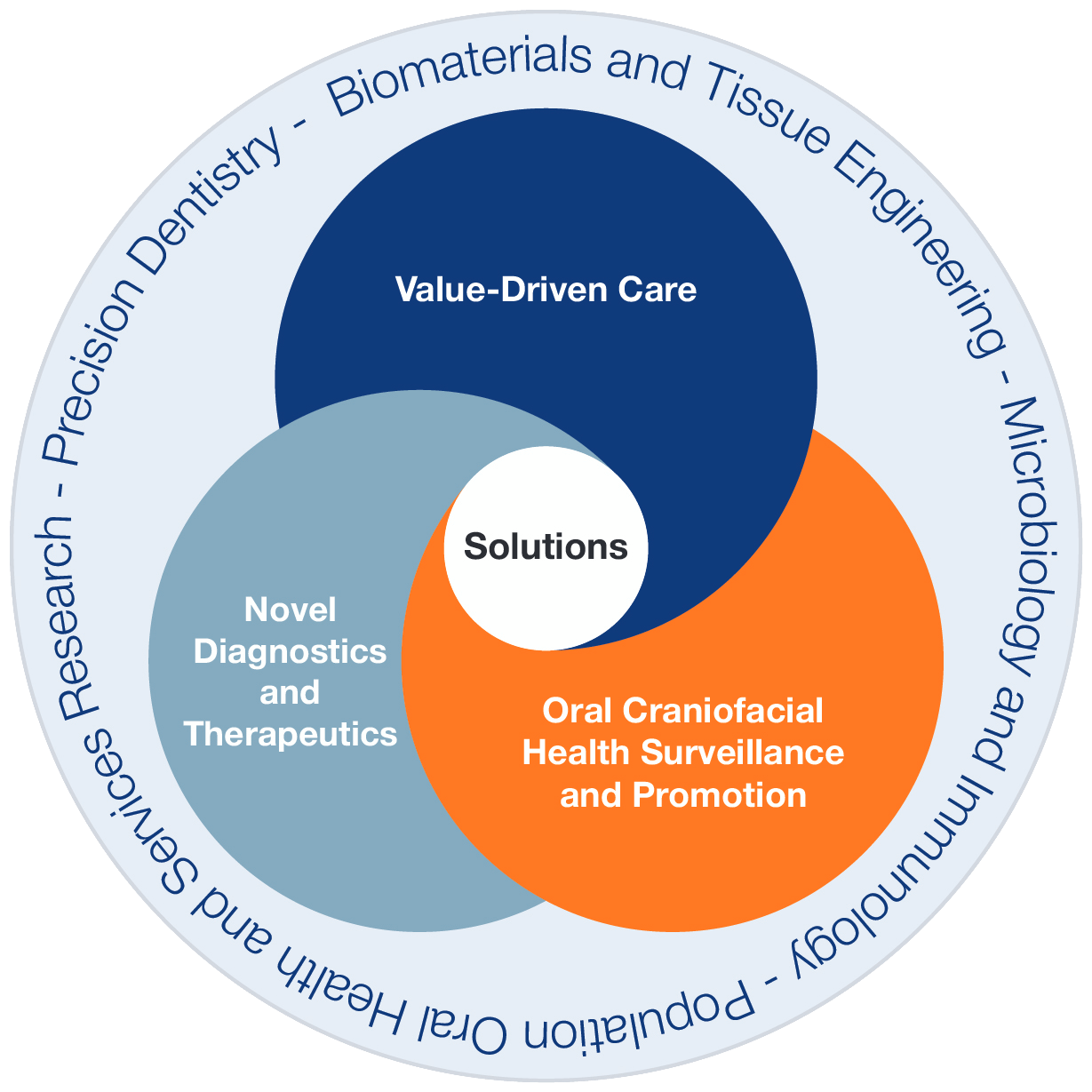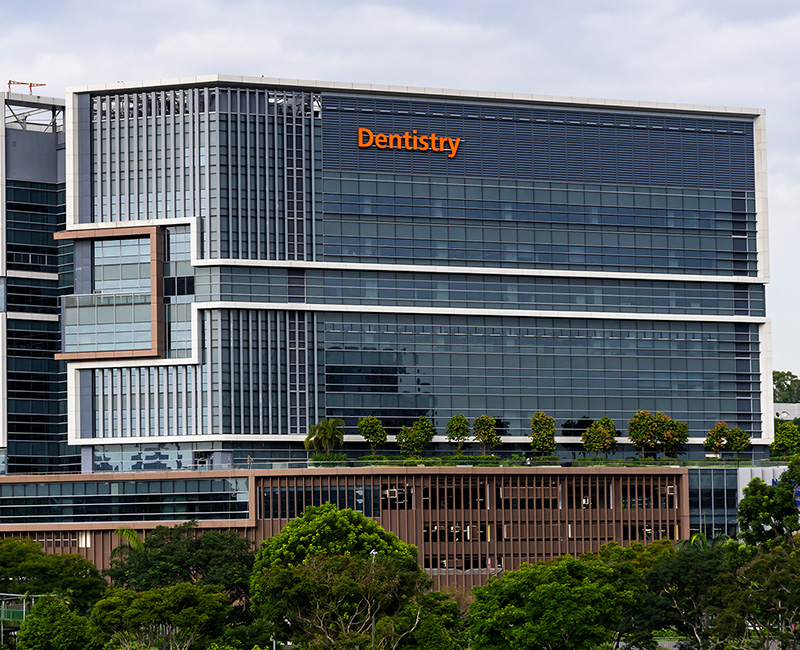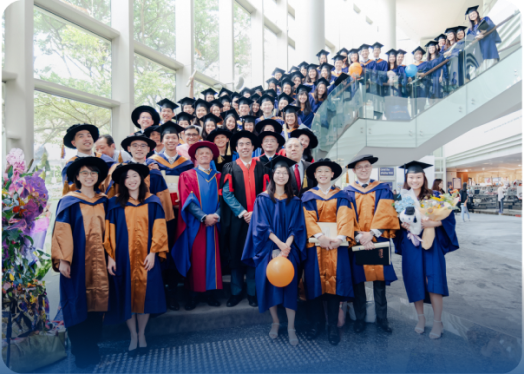- Home
- About
- Education
- Discover Education
- Undergraduate
- Prospective Students
- Student Life
- Undergraduate Overseas Elective Programme (Inbound)
- Graduate Studies
- Graduate Studies and MDS Specialist Committees
- Prospective Graduate Students
- MDS Residency Programmes
- Endodontics
- Oral & Maxillofacial Surgery
- Orthodontics
- Paediatric Dentistry
- Periodontology
- Prosthodontics
- Graduate Diploma Courses
- Dental Implantology
- Geriatric Dentistry
- Graduate Degree (Research)
- Master of Science (MSc)
- Doctor of Philosophy (PhD)
- Lifelong Learning (CADE)
- Student Support
- Scholarships & Financial Aid
- Student Achievements
- Research
- Research Thrusts
- Graduate Degree (Research)
- Master of Science (MSc)
- Doctor of Philosophy (PhD)
- Research Groups
- Biomaterials and Tissue Engineering
- Microbiology and Immunology
- Population Oral Health and Services Research
- Precision Dentistry
- Oral Care, Health Innovations and Designs Singapore (ORCHIDS)
- Resources
- Biostatistics
- Clinical Research Unit
- Research Administration
- Research Laboratory
- Achievements
- Clinical Services
- Giving
- Alumni
- News & Events
- Press
- Contact Us
About
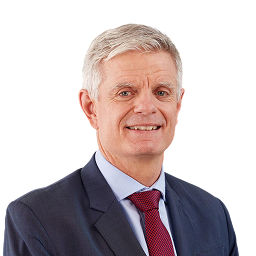
Dean’s Message

Greetings from the NUS Faculty of Dentistry! Founded in 1929, the Faculty strives for excellence in dental research and education in the region and globally. Since our foundation, we have been extraordinarily proud of our graduates, staff and partners for their significant contributions towards improving health and wellbeing in the communities we serve.
Prof Chris Peck
Vision
Leading and inspiring excellence in oral health
Mission
We champion person-centred care by integrating innovative research and enterprise with transformative education
About Us
The NUS Faculty of Dentistry began as a Department of Dentistry within the King Edward VII College of Medicine in 1929. It was the first dental school to be established in a British colony in the East. It achieved full Faculty status in 1966 and continues as the only dental school in Singapore.
The Faculty is led by the Dean and a team of academic and administrative staff. The Faculty comprises of six disciplines that support and fulfil the Faculty’s strive for excellence in areas of clinical care, research and education.
Unified Dental Education and Research Hub
Since 2019, the Faculty has been located at the National University Centre for Oral Health, Singapore (NUCOHS), integrating clinical services, education, and research. This move supports training more dental professionals with advanced simulation labs and research to address the rising oral health demands.
Clinical Services
Within the National University Health System (NUHS), our undergraduate-led clinic allows our students to provide dental services under the guidance of experienced academic mentors. This hands-on approach ensures quality care for patients while preparing our students for their future careers.
Learn more about our clinic here.
Our Disciplines
Oral Sciences
Oral Sciences
The Discipline of Oral Sciences comprises Dental Public Health, Oral Biology, Dental Materials and Basic Sciences. This multi-disciplinary set-up facilitates a confluence of a broad spectrum of clinical, scientific, research and public health expertise to yield a rich synergy across the dental and basic sciences. It also works closely with the other clinical disciplines in the Faculty of Dentistry and complements their efforts in education, research and service.
The Discipline of Oral Sciences is actively involved in undergraduate and graduate education as well as research.
Oral & Maxillofacial Surgery
Oral & Maxillofacial Surgery
The Discipline of Oral and Maxillofacial Surgery at the Faculty of Dentistry is strategically based in the Main Building of the National University Hospital. Oral and Maxillofacial Surgery is the branch of dentistry that uses surgical methods to correct diseases, injuries and defects in the head, neck, face, jaws and the hard and soft tissues of the oral and maxillofacial area. Common oral surgical procedures include extraction of teeth, wisdom teeth surgery, dental extractions for medically compromised patients, placement of dental implants, bone grafting, aesthetic and functional jaw surgery and diagnosis and treatment of cysts and tumours.
The Discipline teaches and practices a broad scope of Oral and Maxillofacial Surgery, Oral Radiology, Oral Pathology and Oral Medicine. It boasts of a reputable team of Faculty, Clinicians, Residents and Part Time staff. The undergraduate programme involves a combination of didactic courses, seminars, independent study, along with strong clinical training in all aspects of oral and maxillofacial surgery. The course of study is organized to allow the student to work closely with full and part-time faculty and they are exposed to a wide variety of clinical situations. The Discipline also offers a postgraduate programme in oral and maxillofacial surgery that prepares candidates for examination for the Master of Dental Surgery and for a career that encompasses the broad scope of the speciality.
The Discipline places a lot of emphasis on research and invests in the future of the speciality. The Discipline also maintains a research program leading to Master of Science and Doctoral Degrees in Oral and Maxillofacial Surgery. There is also scope for dental students to pursue research in oral and maxillofacial surgery under the Undergraduate Research Opportunity Programme. Our faculty members are active in promoting exciting research pursuits from basic laboratory science to mining evidence from clinical practice and developing new surgical techniques.
Endodontics, Operative Dentistry & Prosthodontics
Endodontics, Operative Dentistry & Prosthodontics
Endodontics deals with the morphology, physiology and pathology of the human dental pulp and peri-radicular tissues. Second-year undergraduates are taught the biology of the normal pulp as well as the aetiology, diagnosis, prevention and treatment of various conditions of the pulp and peri-radicular tissues. Third and final-year students then get supervised hands-on practise in providing endodontic treatment for patients.
Operative Dentistry
Operative Dentistry deals with the restoration of the diseased or damaged tooth. Students are introduced to the basics of cavity preparation and restoration in their first year. During the two-year pre-clinical course, students practise simple filling procedures in the phantom head room where they develop their psychomotor skills and learn to manipulate restorative materials. They will then bring these skills to the clinic when they treat patients.
Prosthodontics
Prosthodontics restores oral structures through the use of crowns, bridges, dentures and implants. The undergraduate prosthodontic programme stretches over three years, beginning with removable partial denture technique in the second year. Fixed prosthodontics is introduced at the end of the second year. Simple prosthodontic work is carried out in third-year clinics and more complex cases in final-year clinics.
Another important focus of the department is research. Major areas of research include the development of biomaterials for dental use, alternatives to dental amalgam, and the development of IT-related and multimedia applications in teaching and learning.
The efforts in research have paid off with a recent patent on the invention and development of a carbon dental post. The concept of a functionally graded material was employed in the development of a dental post. This was to help reduce the stress concentration at the tip of the dental post which is cemented in the endodontically treated tooth. A graded stiffness, where the apical end is of lower stiffness than the coronal end, allows more even dissipation of stresses in root dentine. Finite element analysis and photoelastic stress analysis were performed to test the efficacy of this new material.
Periodontics
Periodontics
This discipline deals with diseases of the gums. It is one of the first clinical subjects the undergraduate encounters in the dental course. Through the lectures, tutorials and clinical sessions, undergraduates study about the normal and pathological tissues of the periodontium as well as the aetiology and classification of gingival and periodontal disease. Students in their third and final year treat patients with periodontal problems. They are also given the opportunity to perform simple periodontal surgical procedures during their final year.
Orthodontics & Paediatric Dentistry
Orthodontics & Paediatric Dentistry
Orthodontics deals with the development of dentoalveolar and craniofacial structures. This course comprises lectures, tutorials and clinical sessions, and aims to provide undergraduates with the skill and expertise to diagnose positional aberrations of the teeth and jaws. It also equips the students with the ability to treat simple cases of malocclusion with removable and functional appliances. Sometimes, students are given the opportunity to apply fixed appliances in the treatment of simple malocclusions.
Paediatric Dentistry
Paediatric Dentistry teaches the prevention, diagnosis and management of dental conditions in the young. The pre-clinical course, which consists of lectures and paediatric operative techniques, is conducted in the third year. Paediatric dentistry clinical sessions begin in the final year. Here, students are given the opportunity to treat and manage dental conditions in young children.
Primary Dental Care & Population Oral Health
Primary Dental Care & Population Oral Health
Primary care is a valuable starting point within the healthcare ecosystem to promote oral health. With appropriate primary dental care, it facilitates the timely prevention, detection and management of the two most common oral diseases – dental caries and periodontal disease. Often, the effective management of these diseases requires a combination of prevention and treatment. The Discipline therefore focuses its efforts on promoting and maintaining oral health through primary dental care, prevention and health promotion. Dental Public Health, which addresses the art and science of prevention, is championed by the Discipline through a broad range of educational activities in the undergraduate curriculum, research as well as community engagements and partnerships. The Discipline also looks at how primary dental care can be integrated within the broader context of oral healthcare delivered across a spectrum of settings including the community, hospitals, national specialty centres and intermediate and long-term care facilities.
Our History
1929
The Dental School in Singapore had its beginnings in a disused ward of the Singapore General Hospital (SGH) when Professor E.K. Tratman was appointed Head of the Dental School of the King Edward VII College of Medicine.
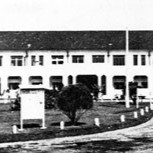
1933
1938
1939 – 1945
1949
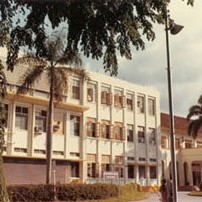
1950
1955
1962
1966
1970
1979
1985

